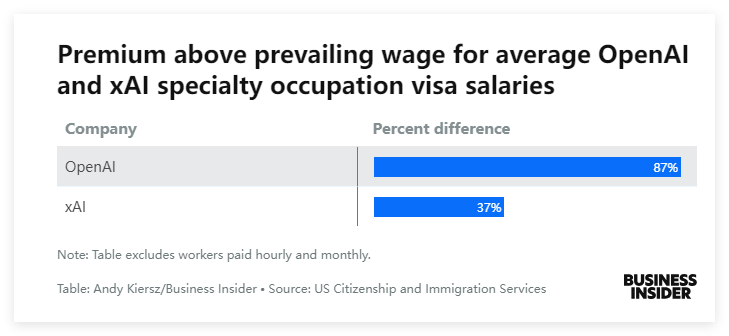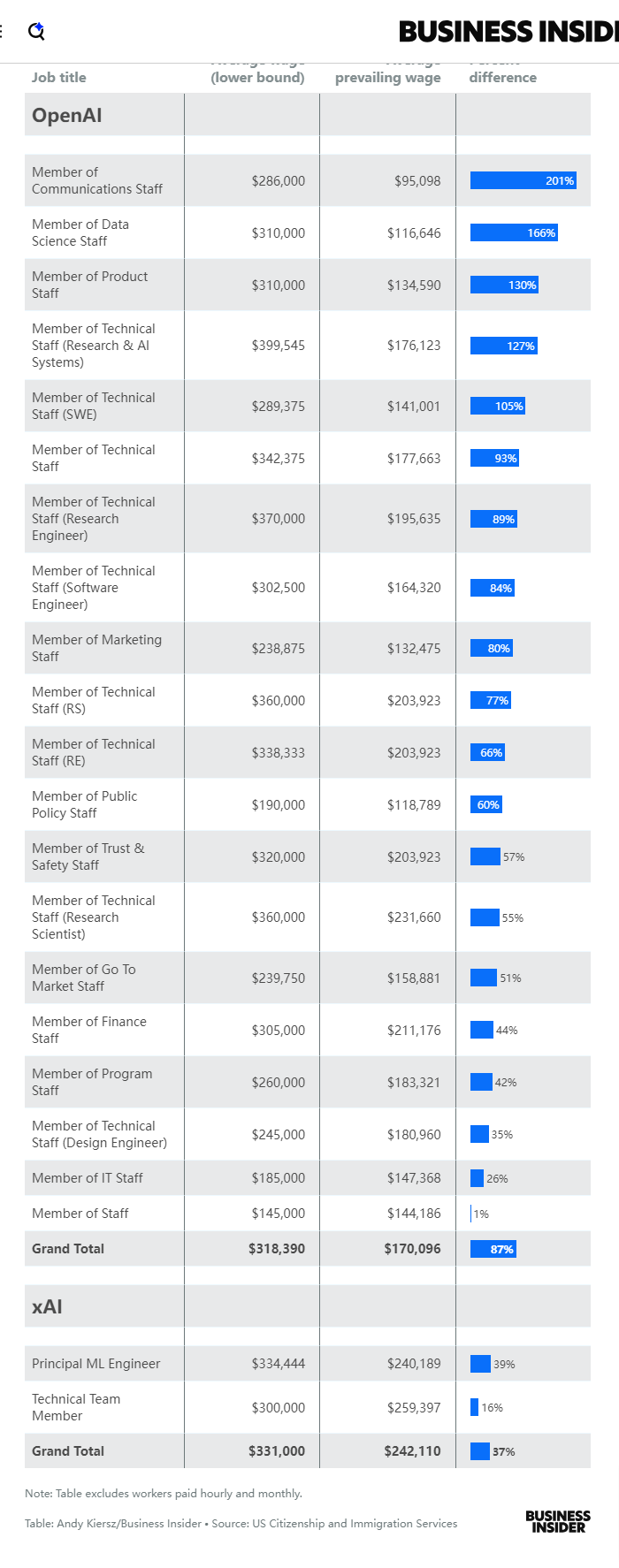This article analyzes the fierce competition for talent between Elon Musk’s xAI and Sam Altman’s OpenAI, especially the dispute surrounding salary. Business Insider analyzed the special visa application salary data of the two companies since 2024 and revealed that OpenAI's salary is much higher than xAI, even several times higher than the industry average. The competition not only reflects the artificial intelligence industry's thirst for top talent, but also highlights the increasingly tense relationship between Musk and Altman, as well as Musk's public criticism and lawsuit against OpenAI.
According to businessinsider, as the artificial intelligence industry continues to attract investment and attention, the competition for talent between Elon Musk’s xAI and Sam Altman’s OpenAI has become increasingly fierce. Musk filed a lawsuit in August this year, accusing OpenAI of "starving competitors" through "generous compensation."
To verify Musk's salary allegations, Business Insider analyzed special visa application salary data from the two companies going back to 2024. The study found that while both companies paid well above the industry average for a handful of positions, OpenAI's pay even exceeded the standard salary range. Documents filed by companies when they hire foreign workers on special visas such as H-1B provide a unique look into the details of pay at both companies.

It is reported that xAI currently has only about 100 employees, while OpenAI has about 3,000 employees. According to U.S. Customs and Immigration data, xAI pays 37% more than the industry average for investigation positions, and OpenAI pays 87% more. Specific to the salary range, the salary of xAI’s professional visa application position ranges from 250,000 to 500,000 US dollars, and the salary of the chief machine learning engineer is nearly twice the current salary; the salary of OpenAI’s special visa application position ranges from 145,000 to 530,000 US dollars. During this period, the salary for some technical positions even exceeded three times the prevailing wage.

Musk and Altman co-founded OpenAI in 2015, and Musk was one of the investors who initially committed $1 billion. In 2018, he resigned from Tesla's board of directors due to possible conflicts of interest in artificial intelligence.
Since then, Musk has repeatedly criticized OpenAI, claiming that the company has deviated from its original intention. He filed lawsuits this year, accusing OpenAI of anti-competitive behavior and claiming that he was "cheated" and "manipulated." OpenAI's lawyers countered that the lawsuits were nothing more than Musk's way of constantly harassing the company to gain a competitive advantage.
Since Musk launched xAI in 2023, the company has hired at least nine former OpenAI employees, including xAI co-founder Igor Babushkin. In April this year, xAI also recruited a Tesla engineer. This war for talent reflects the fierce competition in the artificial intelligence industry and the thirst for top talent. Musk emphasized in the lawsuit that recruiting should be the company's "most important consideration" and advocated "bringing in top talent at all costs."
Notably, representatives from Musk, Altman, and their companies have not commented further on the allegations.
All in all, the talent war between xAI and OpenAI, and the resulting salary dispute, are a microcosm of the fierce competition in the artificial intelligence industry, and also indicate that more similar conflicts may occur in the future development of the industry. The final result of this competition will have a profound impact on the pattern of the artificial intelligence industry.